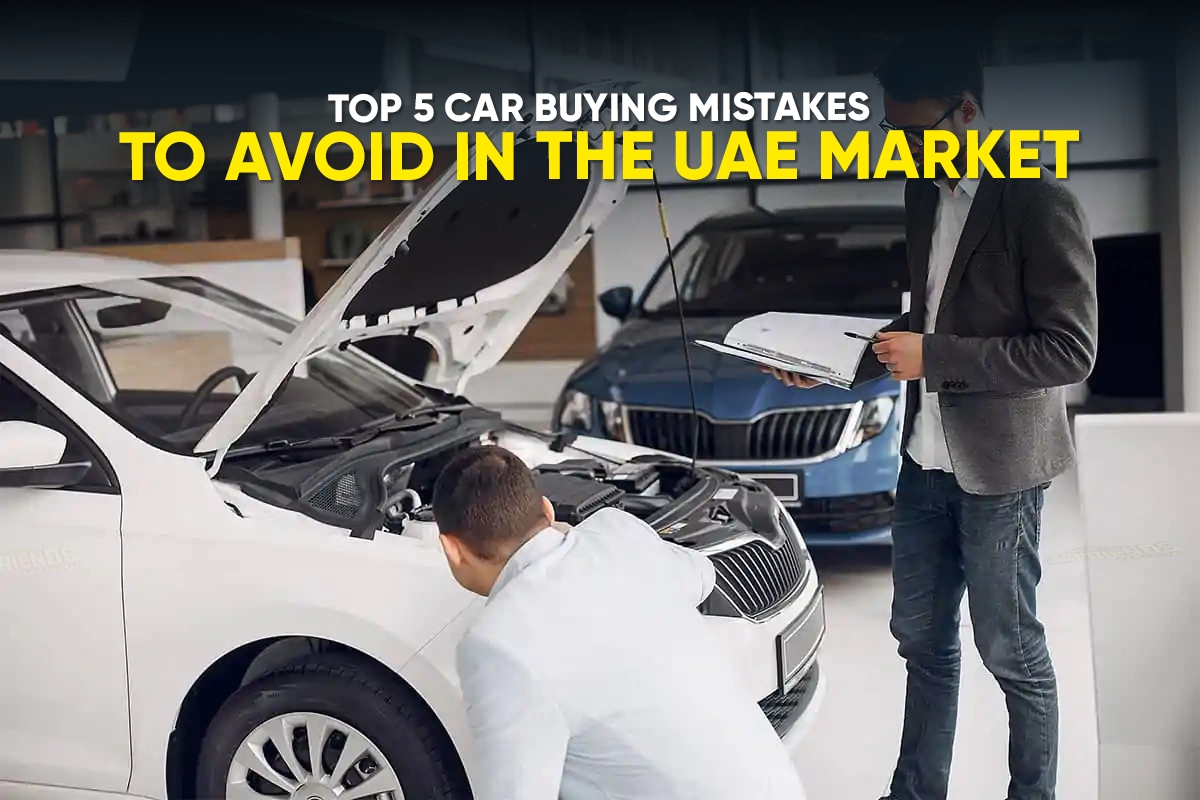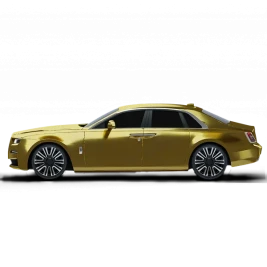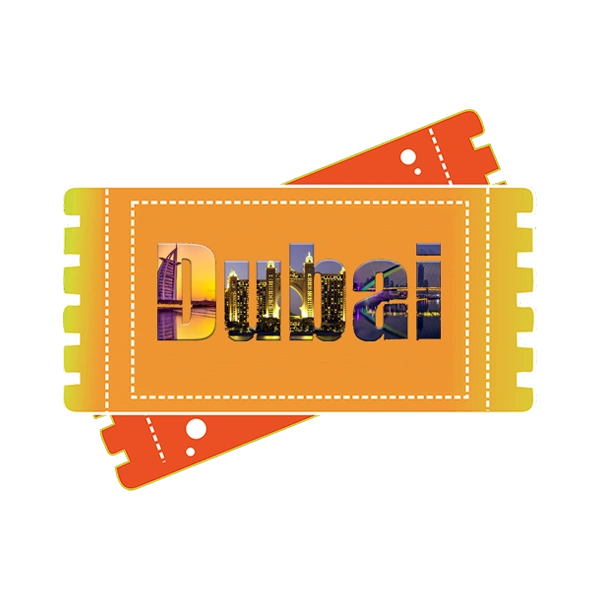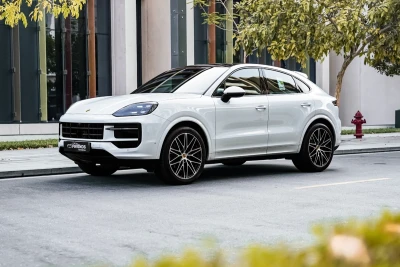Top 5 Car Buying Mistakes to Avoid in the UAE Market

The UAE's dynamic automotive market offers incredible opportunities, but it also harbours significant risks for the unprepared buyer. A fantastic deal can quickly become a five-figure financial nightmare if you overlook critical steps. For your convenience, I’ve distilled the experience of countless local transactions into the five most common and costliest mistakes to avoid in the UAE market. Mastering this list is the best insurance policy you can buy against hidden defects, inherited debt, and unforeseen maintenance bills.
1. Skipping a Professional Pre-Purchase Inspection (PPI)
This is arguably the single most critical step you can skip, and it comes down to a false economy. Viewing the PPI as an optional cost is like buying a house without a structural survey. You are betting thousands of dirhams that a complete stranger is telling you the full, unvarnished truth.
In the UAE, where hidden accident damage and rapid sales are common, the PPI isn't a suggestion—it's your essential shield against immediate and catastrophic repair bills.
Why does this mistake happen:
Trusting the Seller: You might trust the seller's assurances that the car is perfect, especially if they seem honest or you know them.
Rushing the Decision: In a competitive market, you may fear missing out on a seemingly great deal and skip the inspection to close the sale quickly.
Saving money Upfront: Some may see the PPI cost (AED 300–600) as an unnecessary expense. You may also fail to recognize it as a low-cost insurance policy against a major financial risk.
Superficial Assessment: You may conduct your own basic checks and test drive, and feel that it is sufficient. However, you may not realize that a professional mechanic can detect deeper issues.
Effects of the mistake on you:
Immediate and Costly Repairs: You may discover hidden issues, such as a faulty transmission, a failing engine, or a rusted chassis, immediately after purchase. This leads to thousands of dirhams in unexpected repair costs.
Safety Hazards: Undetected problems like worn-out brakes, steering issues, or improperly repaired accident damage can pose a significant safety risk to you and your passengers.
Legal Recourse Limitations: It can be very difficult for you to seek compensation from a private seller after the sale is complete. It is even worse, especially without a documented inspection report proving the defects existed beforehand.
2. Not Verifying Vehicle’s Full History & Ownership
The paperwork tells a story, and if the seller’s version doesn’t match the official records, you could be inheriting more than just a car—you could be inheriting a hidden past. The UAE has excellent systems for tracking vehicle history. Failing to use them leaves you vulnerable to sophisticated scams like odometer fraud, undisclosed major accidents, and even unknowingly purchasing a vehicle with legal complications. Never rely on appearances; demand documented proof.
Why this mistake happen:
Accepting Limited Information: A seller may provide a vague or incomplete history, and you accept it without requesting a formal report. This is particularly common in private sales.
Believing Manipulated Records: Some sellers forge service records or tamper with the odometer to misrepresent the vehicle's true condition and value. If you’re an uninformed buyer, you will trust these fake documents.
Purchasing From a Friend or Relative: You may feel uncomfortable requesting formal reports from someone you know. You automatically assume your friends would be honest about the car's history.
Failing to Check Official Records: You rely solely on the car's appearance and the seller's verbal assurances instead of using official channels like the RTA to verify the history via the VIN.
Effects of the mistake on you:
Hidden Major Accidents: You unknowingly purchase a car that was involved in a serious accident and poorly repaired. This is a total compromise to your safety and the structural integrity of your vehicle.
Odometer Fraud: You overpay for a vehicle with higher mileage than advertised, leading to faster-than-expected wear and tear on components.
Legal Disputes: You may face legal issues if you unknowingly purchase a stolen vehicle or one involved in criminal activity, even if you are an innocent party.
3. Overlooking Outstanding Fines & Loans
In the UAE, the vehicle and its registration are tied to its financial liabilities. This is a crucial distinction: in the eyes of the law, you become responsible for any outstanding fines or bank loans the moment the vehicle is transferred to your name. Rushing the final sale and trusting verbal assurances can turn your new car into an immediate financial burden, often leading to registration blocks and even the potential for bank repossession.
Why this mistake happen:
Blind trust: You assume the seller has taken care of all financial obligations and proceed with the transaction without formal confirmation.
Ignoring a bad sign: When the seller is evasive about the car's financial status or is in a rush to sell, you ignore these warning signs due to eagerness.
Not using official channels: You fail to use the RTA app or website to run a quick check for outstanding fines before finalizing the transfer.
Making a deal on the side: You agree to pay the seller directly and handle the transfer later, putting yourself at risk of the seller disappearing or being untraceable.
Effects of the mistake on you:
Inherited debt: The outstanding fines and bank loans are legally tied to the vehicle's registration. Once the transfer is complete, you are responsible for clearing the debt.
Registration complications: You cannot renew the car's registration until all outstanding fines are paid. This can lead to unexpected delays and fines.
Potential car repossession: If an outstanding bank loan is discovered after the sale, the bank has the right to repossess the car, leaving you with a financial loss.
4. Buying a Non-GCC-Spec Vehicle
The tempting price tag of a non-GCC import is often a Trojan horse. These vehicles, designed for milder climates in North America or Europe, are simply not engineered to withstand the extreme, sustained heat and humidity of the UAE desert. While the initial savings seem attractive, you will inevitably pay a heavy toll in accelerated wear, constant air conditioning breakdowns, and a dramatically reduced resale value, turning a bargain into a high-maintenance headache.
Why this mistake happen:
Attracted by a low price: Non-GCC cars are often cheaper upfront, and you may prioritize the lower cost without understanding the reason for the price difference.
Unfamiliar with local market: Expats new to the UAE may not be aware of the GCC-spec distinction and assume all imported cars are equally suited for the country.
Misleading advertising: A seller may be deceptive about the car's specifications, and an uninformed buyer, like you, does not know how to verify the details.
Effects of the mistake on you:
High maintenance costs: Non-GCC cars often lack heavy-duty cooling systems and other climate-specific features, leading to engine overheating, frequent AC repairs, and accelerated wear on parts.
Difficult to service: Finding a mechanic with the expertise and parts to service non-GCC vehicles can be challenging and expensive.
Poor resale value: Due to their known issues, non-GCC cars have a significantly lower resale value in the UAE, resulting in a substantial loss for you when you try to sell.
5. Underestimating Total Cost of Ownership (TCO)
Too many buyers focus exclusively on the sticker price, forgetting that the purchase is only the first cost. The Total Cost of Ownership (TCO)—which includes insurance, fuel, premium parts prices, and perhaps most importantly, depreciation—can vary wildly between models. A car that is cheap to buy might be extremely expensive to run and even more expensive to sell, creating a long-term financial strain.
Why this mistake happen:
Focusing on the purchase price: You often concentrate on negotiating a low purchase price and neglect to budget for long-term expenses.
Unrealistic assumptions: You, as an expat, might assume maintenance costs will be the same as in your home country or believe a certain brand is cheaper to run than it actually is in the UAE.
Ignoring depreciation: As a first-time buyer, you can fail to account for the car's depreciation, which is one of the single largest costs of vehicle ownership.
Effects of the mistake on you:
Financial strain: High insurance premiums, unexpected repair bills, and fuel costs can quickly strain your monthly budget, turning your dream car into a financial burden.
Difficulty selling later: Failing to account for a car's high depreciation means you will likely lose a significant amount of money when you sell, especially for certain luxury or less popular models.
Negative impact on future finances: A poor initial purchase decision can tie up your money for years, preventing you from making upgrades or other major purchases.
Final Thoughts
Don't let the excitement of a new purchase blind you to the financial risks. The UAE car market rewards preparation and punishes haste. Treat the car-buying process as a serious financial transaction, not just a spontaneous purchase. The steps are simple: Verify, Inspect, and Calculate. Never assume the seller has provided the complete picture, and never skip the PPI. For a stable and stress-free ownership experience in the UAE, make these five avoidance strategies your standard operating procedure. Your due diligence today is your peace of mind tomorrow. Share your thoughts in the comments below.
Written by: FriendsCarRental
Published at: Tue, Nov 11, 2025 11:14 AM
Leave a Reply
Your email address will not be published. Required fields are marked *
Car Rental in Dubai
AED 2500
DAY
AED 0
MONTH
-
 SUV
SUV -
 4 Doors
4 Doors -
 5 Seats
5 Seats
- 1 Day Rental Available
- Deposit: Not Required
- Insurance Included
AED 5500
DAY
AED 0
MONTH
-
 Sports
Sports -
 2 Doors
2 Doors -
 2 Seats
2 Seats
- 1 Day Rental Available
- Deposit: Not Required
- Insurance Included
AED 1200
DAY
AED 0
MONTH
-
 SUV
SUV -
 4 Doors
4 Doors -
 5 Seats
5 Seats
- 1 Day Rental Available
- Deposit: Not Required
- Insurance Included
AED 1600
DAY
AED 0
MONTH
-
 SUV
SUV -
 4 Doors
4 Doors -
 5 Seats
5 Seats
- 1 Day Rental Available
- Deposit: Not Required
- Insurance Included
AED 1500
DAY
AED 28500
MONTH
-
 SUV
SUV -
 4 Doors
4 Doors -
 5 Seats
5 Seats
- 1 Day Rental Available
- Deposit: Not Required
- Insurance Included

 عربي
عربي
 English
English
 Français
Français
 Русский
Русский
 中国人
中国人
 Nederlands
Nederlands
 Española
Española
 Türkçe
Türkçe
 Italiana
Italiana














































